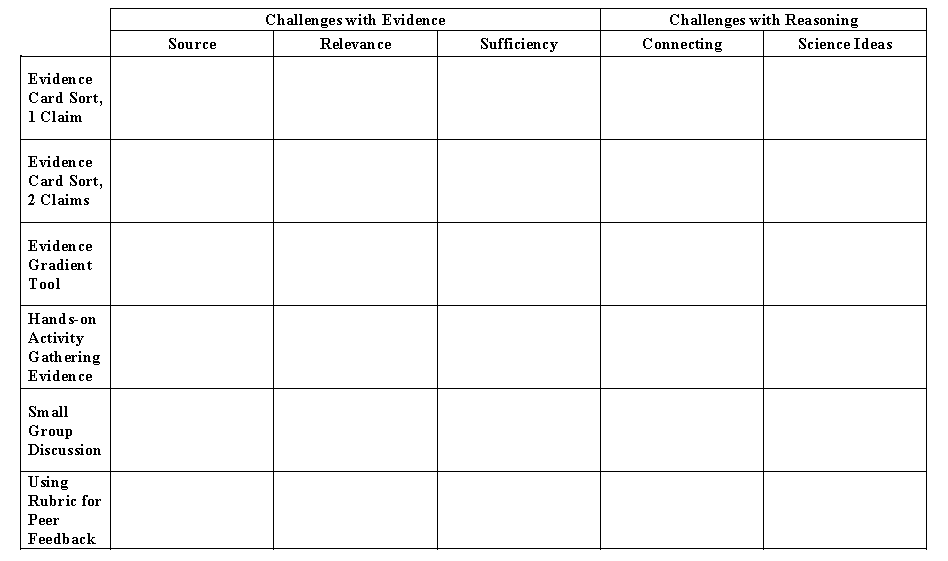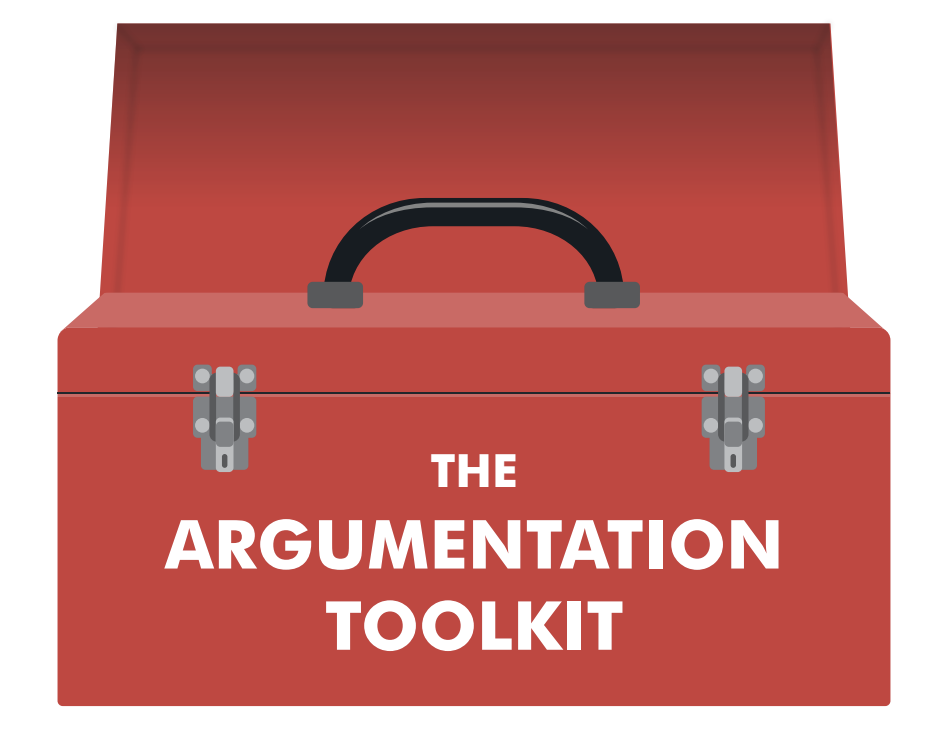How can you create classroom activities to target whole class challenges with evidence and reasoning?
Advanced – Evidence and Reasoning Session 4
Session Goals:
- Teachers will consider the ways that different instructional activities can support student use of evidence and reasoning in science arguments.
- Teachers will identify areas of argumentation that are challenging for their students.
- Teachers will design activities targeting student challenges with evidence and/ or reasoning.
Session Slides:
Advanced Evidence and Reasoning Session 4 PDF
Agenda:
Materials:
*Extension Discussion- Using the Reasoning Rubric!
- Video: Student Argument
- Presentation: Supporting Activity Planning Tool
- Workshop: Design Your Own Activity
- Takeaways
*Extension Discussion- Using the Reasoning Rubric!
Share your experience:
- Share a student argument (oral or written) you evaluated using the Reasoning Rubric. Be prepared to share how you rated this argument and explain why you rated it as you did.
Discussion questions:
- What were the strengths of your student use of reasoning? What were the weaknesses?
- How could you use this information about student use of reasoning to guide your instruction?
- What challenges did you encounter in using the rubric?
1. Video: Student Argument
Watch a video of a student reading his argument below.
Discussion Questions:
- What evidence does he use in his argument?
- What reasoning does he use in his argument?
- What feedback would you provide to improve his argument?
2. Presentation: Supporting Activity Planning Tool
The Supporting Activity Planning Tool features the elements of evidence and reasoning targeted in the rubrics from Session 1 and 2. The tool also includes potential argumentation activities included in other modules, mostly from the Introductory Module.
Argumentation Supporting Activity Planning Tool

The task:
- Work in pairs or small groups to see how these activities could be used to support their students’ challenges using evidence and reasoning.
- On the tool, think about how these activities could potentially help their students overcome each challenge.
- Include notes explaining how the activity might address a particular challenge.
3. Workshop: Design Your Own Activity
The task:
- Ask teachers to identify an element of either evidence or reasoning that is particularly challenging for their students.
- Based upon their completion of the planning tool, teachers will design an activity to support their students’ argumentation in that area.
- Teachers may choose to work independently or with a peer/ in groups.
- During workshop time, teachers can be grouped by either the argumentation challenge or the activity to provide each other with support while they work.
4. Takeaways
- The evidence and reasoning rubrics can be used to identify the challenges classes face, as well as individuals.
- The Supporting Activities Planning Tool can be used as a resource to help teachers plan activities targeting the challenges students encounter using evidence and reasoning.
View Other Sessions
Advanced Evidence & Reasoning Agenda
| Session Name | Description | Length |
|---|---|---|
| Session #1: How are evidence and reasoning similar and different? | This session explores the overlap between evidence and reasoning in an argument, and helps teachers distinguish between the them. | 45 minutes |
| Session #2: How can you support student use of evidence in a scientific argument? | This session introduces the evidence rubric to help teachers provide feedback on student arguments. | 45 minutes |
| Session #3: How can you support student use of reasoning in a scientific argument? | This session introduces the reasoning rubric to help teachers provide feedback on student arguments. | 45 minutes |
| Session #4: How can you create classroom activities to target whole class challenges with evidence and reasoning? | This session provides teachers with work time to develop a lesson that supports student challenges with using evidence and/or reasoning. | 45 minutes |

